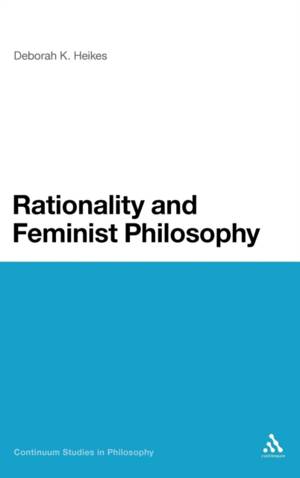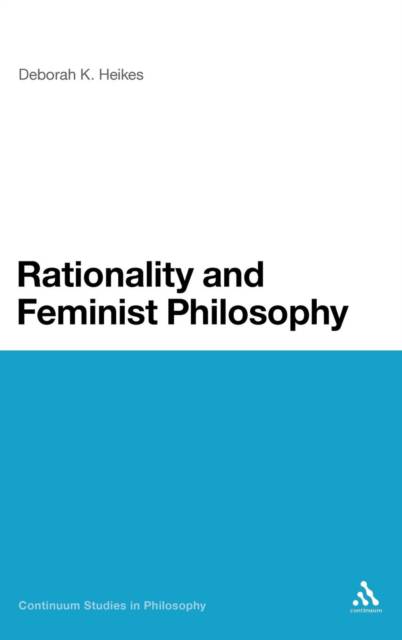
- Afhalen na 1 uur in een winkel met voorraad
- Gratis thuislevering in België vanaf € 30
- Ruim aanbod met 7 miljoen producten
- Afhalen na 1 uur in een winkel met voorraad
- Gratis thuislevering in België vanaf € 30
- Ruim aanbod met 7 miljoen producten
Zoeken
Omschrijving
Rationality and Feminist Philosophy argues that the Enlightenment conception of rationality that feminists are fond of attacking is no longer a live concept. Deborah K. Heikes shows how contemporary theories of rationality are consonant with many feminist concerns and proposes that feminists need a substantive theory of rationality, which she argues should be a virtue theory of rationality. Within both feminist and non-feminist philosophical circles, our understanding of rationality depends upon the concept's history. Heikes traces the development of theories of rationality from Descartes through to the present day, examining the work of representative philosophers of the Enlightenment and twentieth and twenty-first centuries. She discusses feminist concerns with rationality as understood by each philosopher discussed and also focuses on the deeper problems that lie outside specifically feminist issues. She goes on to consider how each conception of rationality serves to ground the broadly conceived feminist philosophical goals of asserting the reality and injustice of oppression. She ultimately concludes that a virtue rationality may serve feminist needs well, without the accompanying baggage of Enlightenment rationality.
Specificaties
Betrokkenen
- Auteur(s):
- Uitgeverij:
Inhoud
- Aantal bladzijden:
- 192
- Taal:
- Engels
- Reeks:
- Reeksnummer:
- nr. 50
Eigenschappen
- Productcode (EAN):
- 9781441161277
- Verschijningsdatum:
- 1/07/2010
- Uitvoering:
- Hardcover
- Formaat:
- Genaaid
- Afmetingen:
- 156 mm x 234 mm
- Gewicht:
- 435 g

Alleen bij Standaard Boekhandel
+ 678 punten op je klantenkaart van Standaard Boekhandel
Beoordelingen
We publiceren alleen reviews die voldoen aan de voorwaarden voor reviews. Bekijk onze voorwaarden voor reviews.








